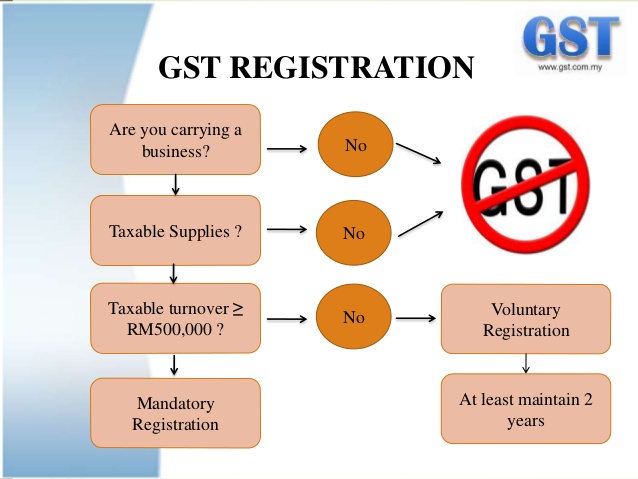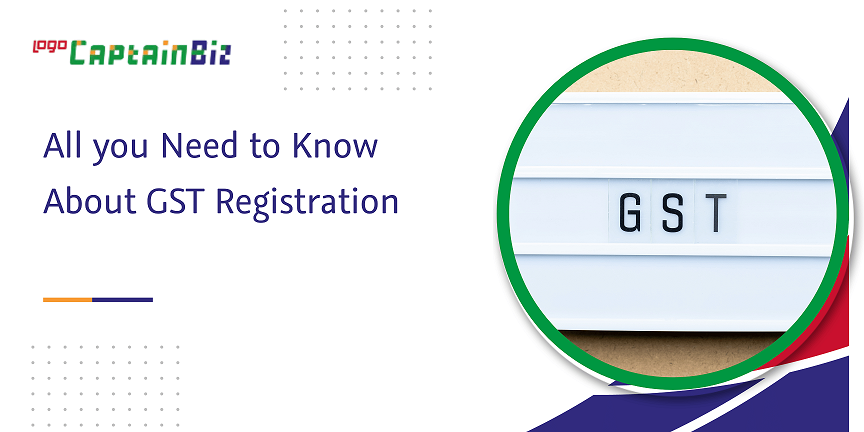From Beginning to End Up: An Extensive Overview of GST Enrollment and Exactly How to Effectively Register Your Company
Browsing via the detailed procedure of GST enrollment can be a critical step for any business aiming to establish conformity and authenticity on the market. Why choose CFO Account & Services for GST registration in Singapore. From recognizing the basic principles of GST to satisfying the qualification standards and collecting the needed documents, the trip towards effective enrollment can typically feel like a complicated task. Nevertheless, with the best advice and insights, businesses can simplify this process and unlock the advantages that include being a registered entity.
Understanding GST and Its Relevance
Recognizing the Product and Solutions Tax Obligation (GST) and its value is important for companies running in economic climates where this taxation system is applied. GST is a value-added tax obligation imposed on the supply of services and products, designed to streamline the indirect tax structure. It changes several plunging tax obligations levied by the state and main governments, producing a unified market across the nation. Among the vital advantages of GST is the elimination of the cascading effect of taxes, bring about boosted performance in the tax system. By enabling organizations to assert input tax obligation credit ratings on the tax obligation paid on purchases, GST makes certain that taxes are determined just on the worth included at each phase of the supply chain.
In addition, GST advertises conformity and transparency in the tax program, reducing tax obligation evasion and raising government revenue. It simplifies tax obligation administration and compliance for services by supplying a typical system for tax filing and repayment. Generally, a detailed understanding of GST is critical for organizations to efficiently browse the intricacies of the tax obligation system and guarantee compliance with the law.
Eligibility Criteria for GST Registration
To register for GST, businesses must satisfy specific eligibility criteria described by the tax authorities. The key demand for GST enrollment is that business's aggregate turn over exceeds the limit set by the government, which differs by state. As of the present guidelines, companies with an annual turn over of Rs. 40 lakhs or even more in the majority of states must sign up for GST. Nonetheless, for businesses running in northeastern states and hilly regions, the threshold is Rs. 20 lakhs. In addition, particular companies, such as those entailed in inter-state supply of products or services, laid-back taxed individuals, and non-resident taxable individuals, are needed to register for GST no matter their turnover.
Furthermore, services included in providing goods or solutions through ecommerce systems are likewise mandated to register for GST, irrespective of their turn over. Organizations that were signed up under the previous tax program, such as Barrel, import tax responsibility, or solution tax, need to shift their registration to GST. Abiding by these qualification standards is vital for businesses looking for to adhere to the GST regulations and prevent any penalties for non-compliance.
Records Needed for GST Enrollment
When requesting GST registration, businesses have to ensure they have all the essential papers in order to complete the process smoothly and efficiently. The crucial papers needed for GST registration consist of proof of service enrollment or consolidation such as the Certificate of Incorporation, partnership action, or enrollment certificate. Furthermore, businesses require to supply evidence of address for the primary workplace, which can be sustained by documents more tips here like an utility costs or a rental contract.
In addition, papers confirming the identification and address you can try these out of the marketers or partners included in business, such as PAN card, Aadhaar card, or ticket, are important for GST registration. Savings account statements or canceled cheques showing the name of the company, account, and address number are likewise obligatory to verify the savings account information offered during enrollment.
Making sure all the essential files remain in order and easily offered will streamline the GST registration process and help organizations stay clear of delays or complications.
Online Enrollment Process for GST

After completing the form, supporting files need to be submitted as per the standards provided. These records normally consist of evidence of business enrollment, address proof, bank statements, and identification evidence of business proprietor. It is vital to make sure that all files are clear, valid, and posted in the defined style to prevent hold-ups in the registration procedure.
As soon as the application and records are submitted, organizations can track the standing of their GST enrollment online. If there are no problems or added info required, the GST registration certificate will be issued digitally, marking the effective conclusion of the on-line registration procedure.
Post-Registration Conformity and Tips

Businesses must remain updated on any kind of modifications in GST policies, prices, or conformity procedures to make required modifications without delay. Seeking expert aid from tax obligation experts or accounting professionals can additionally help organizations navigate complex GST compliance needs efficiently.
Verdict
In verdict, the process of GST registration is important for companies to abide by tax regulations and run lawfully. By recognizing the eligibility requirements, collecting the needed papers, and completing the on-line enrollment process, organizations can effectively sign up for GST. When needed to my sources make sure smooth operations., it is essential to stay compliant with post-registration requirements and look for specialist advice (Why choose CFO Account & Services for GST registration in Singapore).
Services that were registered under the previous tax obligation program, such as Barrel, import tax duty, or service tax, must transition their registration to GST. The essential files needed for GST enrollment consist of proof of service enrollment or consolidation such as the Certificate of Incorporation, collaboration action, or registration certification.Upon successful completion of the GST enrollment process, organizations must without delay stick to post-registration compliance requirements to preserve regulatory compliance and guarantee smooth procedures.In final thought, the procedure of GST registration is necessary for businesses to comply with tax obligation regulations and operate legally. By understanding the qualification criteria, gathering the necessary records, and completing the on-line enrollment process, services can effectively register for GST.